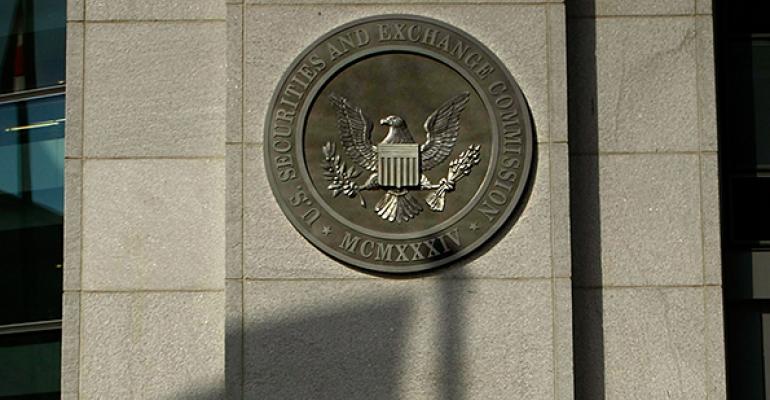The Securities and Exchange Commission removed the word “fiduciary” from its mandated language for registered investment advisors in its Customer Relationship Summary, which was finalized earlier this month.
In its final version of Form CRS, the disclosure document that will be given to retail investors, when describing their standard of conduct, RIAs will be required to say, “When we act as your investment adviser, we have to act in your best interest and not put our interest ahead of yours. At the same time, the way we make money creates some conflicts with your interests. You should understand and ask us about these conflicts because they can affect the investment advice we provide you.”
Broker/dealers are required to use very similar language in describing their standard: “When we provide you with a recommendation, we have to act in your best interest and not put our interest ahead of yours.”
In its original proposal, RIAs were required to say, “We are held to a fiduciary standard that covers our entire investment advisory relationship with you.” That was dropped in the final version.
That’s not to say RIAs can’t use the word “fiduciary” elsewhere in the client relationship summary. SEC staff told the Investment Adviser’s Association that firms may use their own wording to elaborate on the duties owed to their clients, such as when discussing conflicts of interest.
In its final rule, the agency said it made changes to the relationship summary based on investor feedback and results of the RAND survey, which tested the four-page mock-up form with investors.
One of those changes was eliminating the word “fiduciary” and requiring both brokers and investment advisors to use the term “best interest” to describe their standard of conduct. The SEC believes the change will make this information clearer to investors. Indeed, previous surveys of investors have found clients don't understand the term, and in some cases feel the word "fiduciary" has a negative connotation, legal jargon that lowers trust more than enhances it.
That impression has shifted in the wake of the Department of Labor's attempt to push a fiduciary rule on advisors to retirement accounts, and RIAs have increasingly relied on educating the public about a fiduciary standard and using the term to differentiate themselves from brokers. In that sense, some see restricting the use of the word in disclosure statements akin to pulling the rug out from underneath advisors.
Some folks in the RIA community were upset by the development; Skip Schweiss, TD Ameritrade Institutional’s head of advisor advocacy was one of the first to spot the difference.
“So we can't say that we are fiduciaries but we can use the definition of a fiduciary as an explanation that's about the dumbest thing I've ever heard,” wrote Donald “DJ” Windle, founder and wealth manager for Windle Wealth, on Twitter.
In its final interpretation of the fiduciary standard, the SEC removed language from the original proposal requiring investment advisors to “put clients’ interests first,” another change that has caused consternation in the industry. A study released this week by Commissioner Robert Jackson Jr., who dissented in voting on the regulatory package, found that this is the very language that most advisors use when describing their fiduciary duties.
Editor's Note: This story was updated on June 20 to reflect the fact that while the term "fiduciary" was removed from the mandated language for RIAs in the client relationship summary, they can, if they wish, use the term elsewhere in Form CRS.





